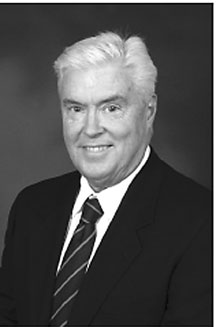Here’s Your Year-end Investment Checklist
December 23, 2011
Financial Focus
By Mike Kelley
Columnist
As an investor, you’ve pretty much seen it all in 2011 - including slow-but-steady gains early in the year, a market correction during the debt ceiling debate and the U.S. credit downgrade, and huge one-day price movements, both up and down - and there’s still a month to go. But despite the volatility of the past 11 months, you can make some positive year-end investment moves, including the following:
• Boost your 401(k) contributions. If your employer permits you to make extra contributions to your 401(k), put in as much as you can afford, up to contribution limits. You typically contribute pretax dollars, so the more you invest, the lower your taxable income. Plus, your earnings have the potential to grow on a tax-deferred basis.
• Consider converting to a Roth IRA. You might benefit by converting a traditional Individual Retirement Account (IRA), which offers tax-deferred earnings, to a Roth IRA, whose earnings grow tax free, providing you don’t start taking withdrawals until you’re at least age 591/2 and you’ve held your account for five years. Keep in mind, though, that you’d need the money available to pay the taxes that would be due on such a conversion. Also, income limits apply to Roth IRA contributions. This is a complex decision that you should discuss with your qualified tax professional.
• Set up automatic contributions for 2012. Like most people, you may find it difficult to come up with a lump-sum payment to fully fund your IRA for the year. Why not set up an automatic investment plan for 2012? By directing your bank to transfer the same amount each month from your checking or savings account to your IRA, you’ll find it easier to “max out” on your IRA - and, at the same time, you’ll boost your investment discipline.
• Contribute to a 529 plan. When you contribute to a 529 plan, your earnings have the potential to grow tax free, provided they are used for qualified higher education expenses. (However, 529 plan distributions not used for qualified expenses may be subject to income tax and a 10% penalty.) Furthermore, your 529 plan contributions may be deductible from your state taxes. Discuss this with your tax professional.
• Re-evaluate your investment mix. It’s a good idea to review your investment mix at least once a year to help ensure your portfolio is still aligned with your goals, risk tolerance and time horizon. Due to changes in market value, your portfolio can undergo subtle, but significant, changes - even if you took no action yourself. Consequently, take the time to review your holdings with your investment professional to help ensure you’re still “on track.”
• Review your insurance coverage. If you’ve experienced any changes in your life in 2011 - new spouse, new child, divorce, new job, etc. - you may need to review your life insurance coverage to make sure that it’s still sufficient for your needs and that you still have the correct beneficiaries in place.
To determine if any of these actions are right for your situation, consult with your financial advisor and qualified tax professional. By taking these and other steps, you can close out 2011 on a positive note and get 2012 off to a good start.
Edward Jones, its employees and Financial Advisors are not estate planners and cannot provide tax or legal advice. Please consult your estate-planning attorney or qualified tax advisor regarding your situation.



